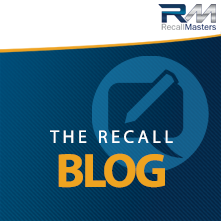The Call for Vehicle Safety Can Never be Silenced
The Call for Vehicle Safety Can Never be Silenced
A Blog Post by Sean Reyes, Chief Marketing Officer for Recall Masters
According to an article in Jalopnik, GM has started delivering its new Cadillac Lyriq EV to consumers. However, they are making these early adopters sign an NDA that prohibits them from talking to anyone outside of GM about their experience driving it. Also, consumers cannot leave reviews or communicate about it other than with GM employees and—get this—then it can only be verbal. Leaves no paper trail, right?
The National Highway Transportation Administration (NHTSA) is unhappy about this for fear that Lyriq owners might be apprehensive about reporting a safety recall to NHTSA. According to a report in the Detroit Free Press, in an email, NHTSA spokesperson Lucia Sanchez stated, “NHTSA relies on reports from consumers as an important source of information in evaluating potential safety defects. Any agreement that may prevent or dissuade consumers from reporting safety concerns to NHTSA is unacceptable.” Also, the NHTSA is concerned that GM’s actions could motivate other automakers to adopt similar policies. NDAs for car buyers aren’t new, as Tesla proposed one as part of their latest driver assistance software rollout.
Two key pillars at NHTSA are to encourage consumers to report safety issues and concerns and to motivate manufacturers and dealers to ensure the safety of their vehicle owners as well as other drivers on the road. While a vast majority of NHTSA investigations begin with the OEM’s transparent disclosure of defects, a select few arise directly from vehicle owners. Any attempt to silence or intimidate owners – even with financial compensation as a condition to maintain that discretion – threatens the vehicle safety ecosystem. In GM’s defense, the OEM maintains that these Lyriq owners are not prevented from communicating with NHTSA about defects, safety issues, or any matters that might be of interest to the government agency.
In the very near future, ICE, EVs, and perhaps even autonomous vehicles will be driving side-by-side on our roads and highways. If any of these vehicles have a safety issue, it affects all of those sharing the road, not just the driver of the vehicle.
Transparency is the ONLY way all involved can know what action needs to be taken to ensure a safe vehicle and repair any safety issues. Since the inception of the agency, NHTSA and OEMs have achieved impressive statistics when it comes to vehicle safety. The dark days of consumer fears regarding manufacturing defects and the distrust of OEMs are a distant memory. I don’t think any of us want to go back to that. Forcing early adopters of the Lyriq to sign an NDA, and to have to solely report their concerns to GM, does not seem like the most optimum solution.
According to Eric Gordon, a lawyer at the University of Michigan’s Ross School of Business, “We’re talking about automakers interfering with the flow of information to NHTSA and that is something they cannot do. No. 1: NHTSA will win. But it’s also a big PR disaster to have a headline that says, ‘an automaker interferes with consumer safety reporting.’”
I hope these consumers understand that an NDA does not legally prevent them from reporting these concerns. However, my concern is that we’ll see more factory NDAs and that owner confusion may silence owners from saying anything to anybody. And that’s not good for our industry.
About the Author


